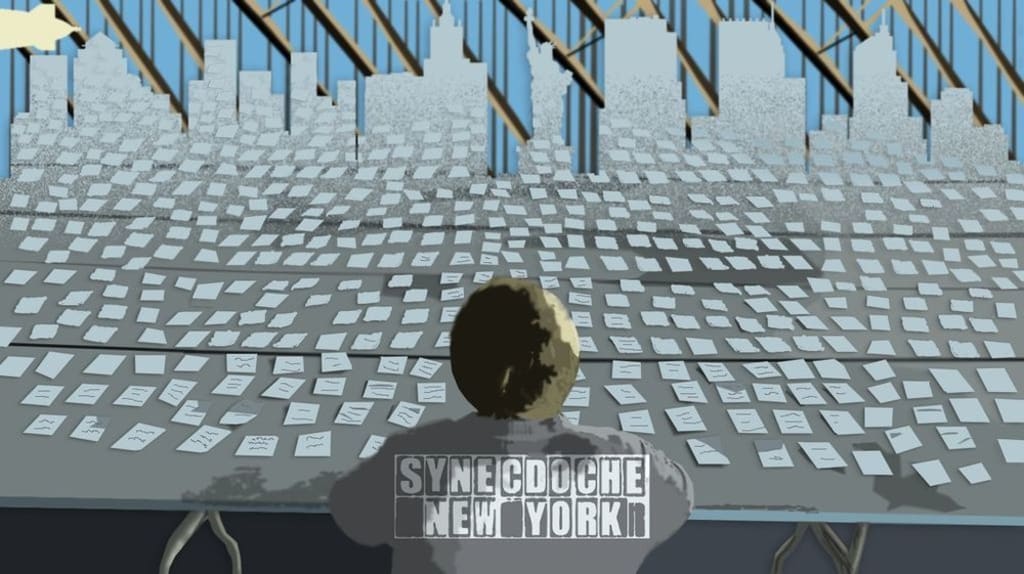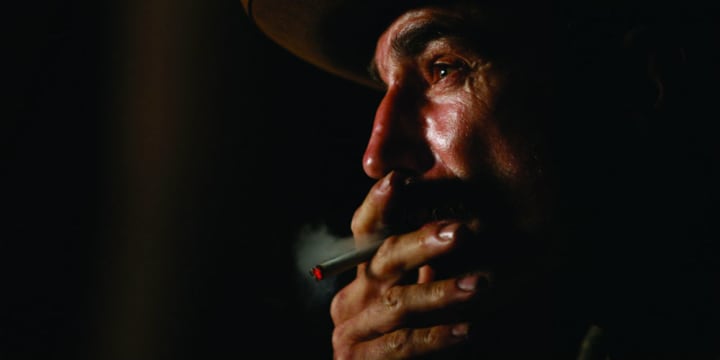A Filmmaker's Guide to: Denialism
Film Studies (Pt.67)

In this chapter of ‘the filmmaker’s guide’ we’re actually going to be learning about literature and film together. I understand that many of you are sitting in university during difficult times and finding it increasingly hard to study and I understand that many of you who are not at university or not planning on it are possibly stuck of what to do, need a break or even need to catch up on learning film before you get to the next level. This guide will be brief but will also contain: new vocabulary, concepts and theories, films to watch and we will be exploring something taboo until now in the ‘filmmaker’s guide’ - academia (abyss opens). Each article will explore a different concept of film, philosophy, literature or bibliography/filmography etc. in order to give you something new to learn each time we see each other. You can use some of the words amongst family and friends to sound clever or you can get back to me (email in bio) and tell me how you’re doing. So, strap in and prepare for the filmmaker’s guide to film studies because it is going to be one wild ride.
Denialism

What is it?
When a character in a work is in denial of their own psychological state and refuses to acknowledge it. Their refusal to acknowledge it is actually the entire basis for the work because it incurs the plot and causes many of the dilemmas in the narrative.
How do we see this in literature?
- It is something that is difficult to pinpoint since there are very specific things we are looking for. So we are looking for the following:
- A denial of a particular psychological state which is clearly displayed by things such as obsession, abuse of narcotics or alcohol and/or abuse of other people
- Other characters which acknowledge this and attempt to do something about it
- More denial from the character it concerns
The narrative having a large impact of dilemma after dilemma because of this
The most famous example I can think of is "The Great Gatsby" by F. Scott Fitzgerald. Jay Gatsby's psychological state seems to be the very thing that propels the parties along, which also propels along his obsession with Daisy, which then again propels ahead his desire to gain access to her which obviously leads to that part when shit hits the fan concerning Gatsby and Tom Buchanan in the book. This is a direct lead to Myrtle's death and thus, to Gatsby's death. The question here is whether Gatsby's refusal to accept life and move on caused his death.
A few other examples of denialism include the following works of literature:
- A Diamond as as Big as the Ritz by F. Scott Fitzgerald
- Absalom, Absalom! by William Faulkner
- Metamorphosis by Franz Kafka
- On the Road by Jack Kerouac
- Fear and Loathing in Las Vegas by Hunter S. Thompson
- Requiem for a Dream by Hubert Selby Jr.
- Less than Zero by Bret Easton Ellis
So we can see that there is a wide range of literature to choose from throughout the timeline of twentieth century literature.
What about film?

In film, there are some factors that are normally true for denialism and these include:
The denialist is normally the main character, but not all the time
The denialist's actions cause the main plot and lead us towards the end of the film
The denialist is normally, in some way, self-destructive
Let us have a look at a famous film in which we see the denialism happen with all three of these things happening in order to get the best experience from our learning.
We have the film “Synecdoche, New York” for example. The main character, Caden, refuses to confront his own psychological problems concerning his marriage and his child. This, then comes out in outbursts of performative characteristics later on in the film and the creation of the synecdoche of New York is a direct result of this. But, throughout this, Caden is still self-destructive well into his project which causes the breakdown of the project from the inside, leading to the apocalyptic realm both from within Caden and within the project. It is inevitable because of the fact he does not change.
Other films of denialism include but are not limited to:
- The Prestige
- The Devil All the Time
- A Clockwork Orange
- There Will be Blood
- Misery
Here are some books you should read.
Further Reading
About the Creator
Annie Kapur
200K+ Reads on Vocal.
English Lecturer
🎓Literature & Writing (B.A)
🎓Film & Writing (M.A)
🎓Secondary English Education (PgDipEd) (QTS)
📍Birmingham, UK






Comments
There are no comments for this story
Be the first to respond and start the conversation.